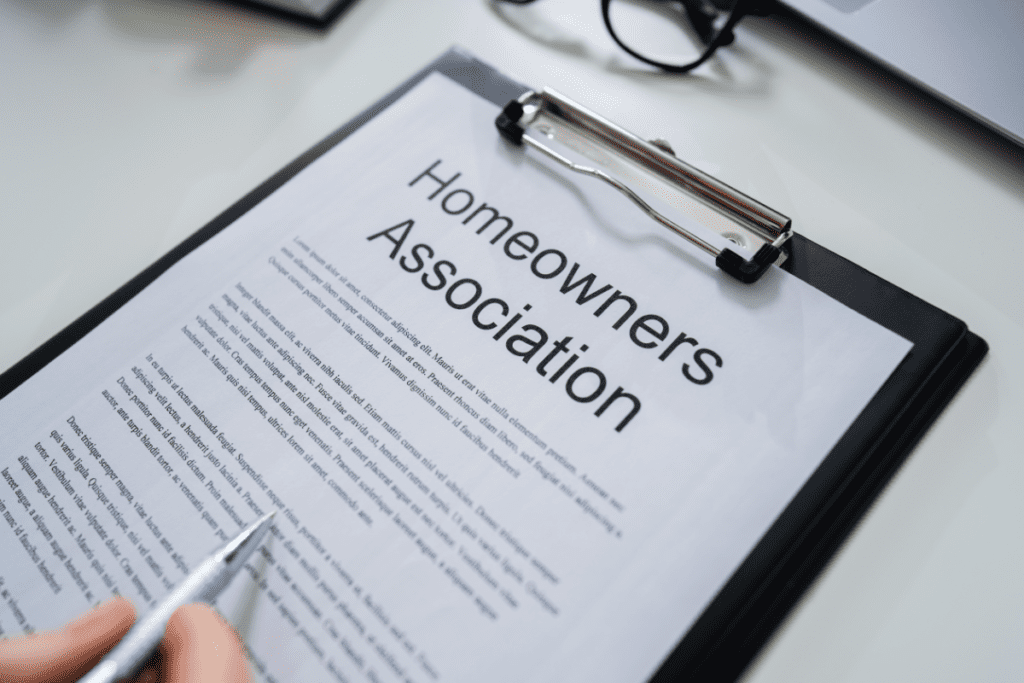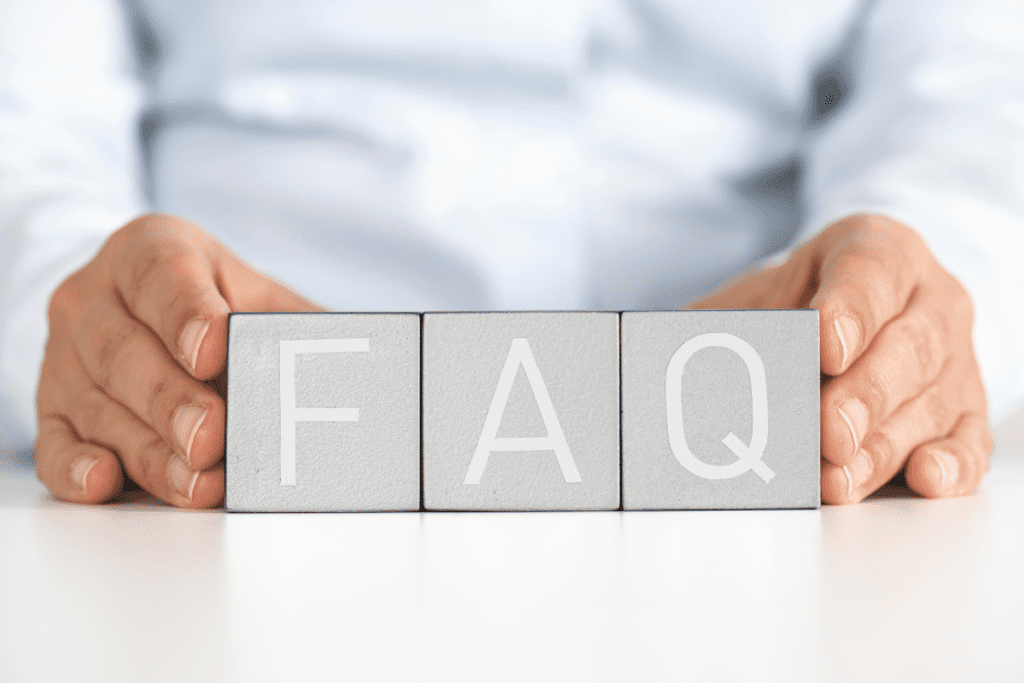Contents
Every homeowners association (or HOA) is governed by a set of rules, restrictions, and legally-binding agreements. Collectively, these stipulations are known as the HOA’s covenants. When everyone follows the covenants, it ensures that the HOA runs smoothly, and that there is a spirit of neighborliness throughout the community.
But what happens when one or more homeowners begin to violate the covenants? This is an unfortunate scenario that pretty much every HOA or condo association must deal with sooner or later. It falls to the Board of Directors to fairly and consistently enforce the covenants, but this is by no means an easy feat.
In this post, we’ll highlight the nature of covenant enforcement and covenant violation. We’ll outline the problems with selective enforcement. And, we’ll highlight some of the enforcement actions that HOA Boards have at their disposal.
For HOA Board in the Carolinas, feel free to reach out to Kuester Management Group. Our company has decades of experience providing HOA management in Huntersville NC, Charlotte NC, Myrtle Beach SC, and HOA Management in Fort Mill SC.
What is an HOA Covenant?

Before proceeding, it may be helpful to define what we’re talking about when we refer to HOA covenants.
Basically, an HOA is a private organization that oversees and manages the community within a planned development. Each HOA is governed by a group of people, specifically the Board. The HOA has governing documents that outline the rules and expectations for everyone in the community, as well as the duties and powers of the HOA Board.
Among these governing documents you’ll have something called the Declaration of Covenants, Conditions, and Restrictions, also known as CC&Rs. Basically, when we talk about covenants, we’re talking about the provisions laid out in the CC&Rs. Generally speaking, the provisions outlined in the HOA covenants are legal and enforceable.
What is a Restrictive Covenant?
In particular, HOA Board members should be attentive to a type of covenant known as the restrictive covenant. Basically, these are just what the name suggests: Covenants that impose some type of restriction on the property owner.
Restrictive covenants usually aim to preserve property values by imposing limitations related to home maintenance, architectural decisions, and the like. Some of the most common types of restrictions are those that pertain to the following categories:
- The exterior appearance of the property or lot.
- Limits on the occupancy of a property.
- Restrictions on leasing.
- Rules and restrictions related to pet ownership.
- Parking restrictions.
- Smoking restrictions.
- Restrictions on various types of nuisances, such as noise, odors, etc.
Generally, these types of covenants can be enforced by the Board of Directors, sometimes via legal action.
When is a Covenant Enforceable?
One of the most common questions we hear from HOA Board members: How do we know when a covenant is enforceable? That’s a critical question, and in some situations the line may be blurry. Generally speaking, if a covenant is reasonable, procedurally correct, and compliant with local and state laws, then it can be enforced by actions of the Board of Directors, or even by legal action.
With that said, some covenants may be impossible to enforce. There are several factors to keep in mind here:
- Enactment procedure. The HOA Board has to follow the proper processes to enforce and enact the covenants, as outlined in the CC&Rs themselves. Failure to do so may render a covenant unenforceable.
- Scope. The HOA has a certain sphere of power and authority. If a covenant is beyond the HOA’s scope of power, then it is not going to be enforceable. Again, the HOA’s scope of power is defined in the governing documents.
- Infringement of rights. Additionally, an HOA may not seek to enforce any covenants that infringe on a homeowner’s legal rights, such as right to free speech and expression.
- Legal compliance. Your HOA cannot try to enforce any covenant that is at odds with local, state, or federal laws. You can always ask your HOA attorney if you are unsure about where that line is.
- Selective enforcement. Basically, an HOA must enforce its rules and covenants with fairness and consistency. You cannot select some instances to enforce a covenant, and other instances to ignore that covenant. More on this concept in a minute.

What Association Boards Should Know About Covenant Enforcement
When you serve on the HOA Board, part of your job is implementing the covenants of the community, and monitoring adherence to those covenants within the community. In some cases, this may mean administering consequences to homeowners who do not follow the covenants.
One important point is that your Board doesn’t have to enforce covenants alone. Often, the HOA management company will play a role in enforcing the rules and administering penalties. This can be one of the many benefits of enlisting the services of a professional management team.
Regardless of who enforces the covenants, it’s important to do so fairly and consistently. There are a number of tools available for covenant enforcement, including the following:
Send a Warning
Keep in mind that, while homeowners break the rules all the time, it’s usually done without any malice. Homeowners may forget a rule; they may be unclear about the rules; or it may be an honest mistake.
All of that’s to say, sending a warning can often resolve the issue. Simply provide the homeowner with a friendly reminder of what the rules state, referring to the specific covenant in question. Be sure to give this warning in writing, along with an invitation to reach out with any additional questions. Often, sending a warning will rectify the problem.
Impose a Fine
If issuing a warning doesn’t work, you may need to consider fines for violations. This is actually the most common type of covenant enforcement, and it usually does the trick. After all, most homeowners don’t want to have to pay any more than they have to, nor do they want the embarrassment that can come from being called out for a covenant violation.
Before imposing a fine, make sure you send a written notice, alerting the homeowner to their offense and allowing them the opportunity to share their side of the story.
We generally recommend starting with smaller fines, but increasing the amount for repeat offenses.
Revoke Rights
Another option is to revoke the homeowner’s rights and privileges within the community. This may mean taking away a resident’s right to vote in upcoming HOA elections, or even restricting their access to the swimming pool, tennis court, or other amenities.
This can be an effective way to show the offending homeowner that you are serious, and yet it doesn’t actually cost the HOA anything, making it a potentially valuable option.
Consider Legal Recourse
Your HOA may have the legal authority to take the homeowner to small claims court for a money judgment, to impose a lien on their property, or in some cases to seek involvement from the local authorities. These can all be effective options, but should definitely be considered escalations and last resorts.
With any questions about taking legal action, reach out to your HOA management company or your HOA attorney.
What is Selective Enforcement?
We have mentioned the concept of selective enforcement. Basically, this is just another term for favoritism, or for sloppy and inconsistent enforcement.
It is critically important that members of the Board apply the same standards to everyone, including their own family members and friends. Failure to do so not only depletes the Board’s authority, but can actually render the covenants unenforceable.

Be sure your Board has policies in place to monitor adherence to the rules and covenants, and to enforce them with fairness. Having policies and processes in place is the best defense against accusations of selective enforcement.
Frequently Asked Questions About Covenant Enforcement
Do you have additional questions about enforcing the covenants and leasing restrictions of your HOA? Here are answers to a few of the most common inquiries.
Are homeowners associations legally binding?
Most HOAs are considered mandatory, and thus have some level of legal authority. Dues-paying members cannot simply opt-out of these legal dimensions.
Is an HOA the same as a covenant?
The covenant refers to one of the rules or restrictions used to uphold the values and mission of the HOA.
How long do covenants last?
A covenant will typically last until the HOA votes to change or repeal it.
Can a homeowners association take your house?
While it is exceedingly rare for an HOA to actually initiate any type of foreclosure or property seizure, the HOA can place a property lien.
Are bylaws the same as covenants?
While bylaws and covenants play different roles within an HOA, both may be considered important for the functioning of the community.
Can you refuse to join a homeowners association?
If you buy into an HOA, that typically requires you to sign off on the covenants and other bylaws.
How can I get out of paying my HOA dues?
In most associations, dues are mandatory. There’s typically not a way to opt-out of them, though you may seek leniency if you’re facing financial hardship.
What happens if you don’t pay HOA fines?
You may face covenant enforcement via a warning, additional fines, suspension of privileges, or legal action.
What happens if you ignore a covenant?
You may face covenant enforcement via a warning, additional fines, suspension of privileges, or legal action.

